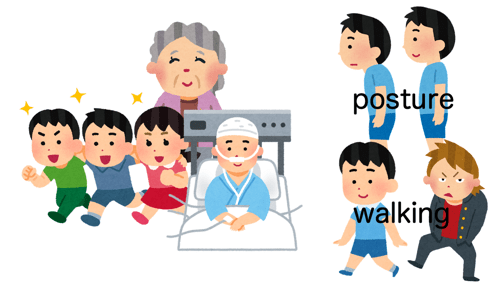Progress Report
Realization of a society where people can live a forward-looking life in the face of adversity[3] Maemuki (Forward-looking) ELSI and social applications
Progress until FY2024
1. Outline of the project
This R&D Item is responsible for the ELSI (Ethical, Legal, and Social Issues) and social application of “Maemuki (forward-looking)”. By accomplishing this R&D Item, we will evaluate Maemuki in various social situations and clarify the elements and degree of Maemuki leading to desirable mental states in populations with various attributes and situations (different life stages such as children, adults, and the elderly; different mental states such as palliative care patients and mania and depression). This will contribute to the project's goal of developing positive estimation and assistive technologies.
The challenge in achieving this goal is that the definition of “Maemuki” is different depending on life stage and health status, and at the same time, it is difficult to conduct an objective evaluation method of Maemuki based on the same criteria because of differences in physical functions and body size. We are also working on the development of Maemuki evaluation and intervention methods that take ELSI into account, with the idea of assisting and training Maemuki in accordance with the individual's situation and needs.

2. Outcome so far
●Consideration of the significance and ethics of Maemuki
The research group of Dr. Shigeru Taguchi (Hokkaido University) has compiled a provisional reference guidebook on “positive functioning,” in which they examine and reflect on the concept of being “forward-looking” by considering the complex, multidimensional relationship between positive and negative life events from philosophical, psychological, and ethical perspectives.
●The Relationship between Life Stages, Health Status, and Maemuki
The research group of Dr. Maiko Fujimori (National Cancer Center) conducted a study on creating a Maemuki scale for elderly and palliative care patients. The questionnaire survey results indicated no specific biases compared to the general adult population. However, it was suggested that elderly cancer patients scored significantly lower in aspects related to self-growth compared to younger cancer patients. Using natural language processing methods, content analysis identified gratitude related to interpersonal relationships and fulfilling obligations as contributing factors to Maemuki attitudes in cancer patients and the elderly. Additionally, a longitudinal study on palliative care patients suggested that patients who perceive their cancer as potentially curable have a higher one-year survival rate compared to those who perceive it as incurable. In terms of physical measurements related to Maemuki attitudes in the elderly and palliative care patients, data from gait analysis suggested that elderly cancer patients might be physically more fragile compared to younger cancer patients and healthy elderly individuals. Moreover, an examination of the relationship between body posture and emotions indicated that the physical function scores were lower under physical posture restrictions, and negative moods were higher compared to the normal state.
The research group of Dr. Tetsuya Matsuda (Tamagawa University) and his research group conducted a data-driven analysis of lifestyle, Maemuki scale, and physical fitness among 1,365 university students through an online survey and physical fitness tests. Their analysis explored how lifestyle is related to physical, mental, and social well-being. The results suggested that lifestyle is indeed associated with these three aspects of well-being. Specifically, the findings indicate that individuals with regular physical activity tend to exhibit higher physical, mental, and social well-being levels. Additionally, the group analyzed gait and its relationship with positive functioning and lifestyle habits by capturing walking movements on video. They developed an AI-based automated gait analysis system and conducted gait motion analyses on approximately 1,000 participants. Using machine learning, they examined the associations between gait patterns and survey-based indicators, revealing a likely correlation between gait and indicators of positive functioning. Further detailed analyses are planned.
The research group of Dr. Hidehiko Takahashi (Institute of Science Tokyo) is collaborating with other PIs to investigate Maemuki attitudes in mental and neurological disorders. They are exploring methods for evaluating Maemuki attitudes and physical measurements. The study plans to enter a full-scale survey phase starting from the fourth year.
3. Future plans
Studies targeting palliative care patients, older adults, and individuals in developmental stages are progressing, and patient-specific, life-stage-specific, and age-specific characteristics related to positive functioning are beginning to emerge. In parallel, the ELSI for "Maemuki" assistive training based on the needs of society will also be studied.